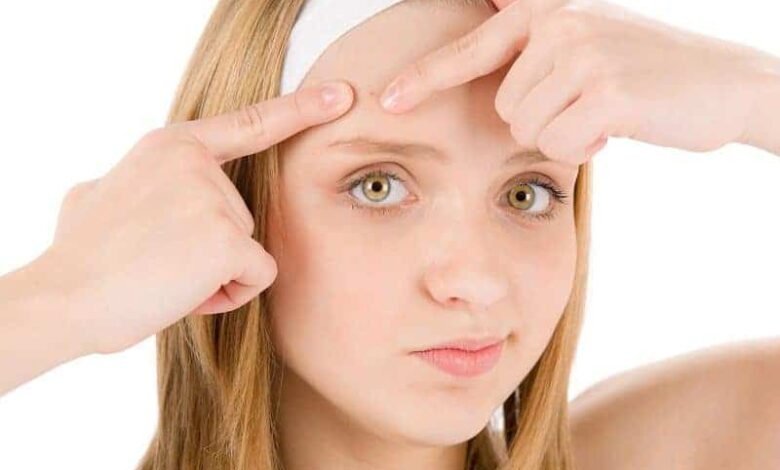Acne

What is acne?
Acne is a red, itchy, skin rash that is most common in people going through puberty. However, it can occur at any age.
Typical acne affects the skin of the face, chest and back and less commonly the neck and upper arms of adolescents and young adults.
Acne usually appears during a period of dramatic and physical changes associated with the development of the human body and personality.
It can cause social isolation and even depression. If left untreated, a more serious rash can lead to disfigurement and scarring that can be difficult to remove.
There are several myths about acne:
There is no single “culprit” for acne, and it cannot be entirely attributed to poor hygiene or a certain diet.
Cleansing the skin is important, but too intensive and obsessive cleaning can even increase the risk of inflammation and redness of the skin. This can irritate the skin and contribute to more severe acne breakouts.
Also, scientific research does not support linking specific foods, such as chocolate or fat, to the appearance of acne.
Instead, the impact of food on acne can be individual and dependent on factors such as genetics, general health and hormonal changes.
To deal with acne effectively, it is important to consult a dermatologist or other medical professional. They can provide individual guidance and treatment that is appropriate for the particular case.
Understanding the facts about acne and dispelling the myths help maintain proper skin care and avoid unnecessary frustration.
What are the causes of acne?
There are several causes of acne, and the main one is the abnormal development of cells inside the hair follicles of the tiny hairs on the skin all over our body, which leads to clogging and the appearance of blackheads – comedones.
The blockage prevents the normal growth of hairs and skin cells and the secretion from the sebaceous glands cannot drain freely, as a result the hair follicle may also rupture.
From the ruptured hair follicle, the sebaceous secretion flows out – sebum from the sebaceous glands and along with it dead skin cells, and this causes irritation and inflammation of the surrounding skin.
Abnormal cell development is favored by bacteria that live inside the hair follicle and secrete substances that cause irritation and inflammation of the skin. This bacteria produces substances that cause irritation and inflammation.
Some hormones such as androgens are also a factor that favors the appearance of acne.
Androgens are male hormones that are found in the blood of both men and women, but their levels are higher in men.
Androgens cause the oil glands in the skin to enlarge and cause these glands to increase sebum production.
Secretion of androgens increases during puberty and this increase contributes to acne.
Acne treatment
Acne treatment is a process that requires attention, patience and consistency. The main step in acne skin care is proper cleansing.
It is recommended that you wash your face once or twice a day with a suitable soap or cleanser.
This helps remove excess oil, dirt and makeup that can clog pores and contribute to acne breakouts.
It is important not to rub your skin with harsh abrasives, as this can cause further irritation and increase inflammation.
In conjunction with proper cleansing, various cosmetic products can be used to help treat acne.
Choosing the right product is important and it is good to consult a dermatologist or read the product leaflet carefully before using it.
In many cases, these products not only help treat existing acne, but also prevent new breakouts by regulating excess oil and reducing inflammation.< /p>
Some acne treatment products are intended for external use, such as gels, creams, and lotions.
They often contain active ingredients such as salicylic acid, benzoyl peroxide or retinoids that help remove dead skin cells, unclog pores and reduce the number of acne breakouts.
In addition, there are homeopathic medicines in the form of tablets that can also be used as an additional option to treat acne.
These tablets contain natural ingredients and are believed to regulate hormonal balance and the immune system, which may play a role in the development of acne.
When choosing makeup for acne, it is important to prefer water-based products. They are less likely to clog pores and contribute to new breakouts.
When choosing makeup, always check the ingredients and avoid products that contain fats or ingredients that can cause allergic reactions.
It is very important not to try to manipulate the acne lesions – the pus-filled pimples, because that way you contaminate the area around the pimple and the acne gets worse.
Remember that acne treatment results can take time and it is important to be patient.
If you notice any adverse reactions or feel that a certain product does not suit you, it is best to consult a specialist – a dermatologist, who will provide you with individualized advice and guidance on the optimal treatment of acne.



